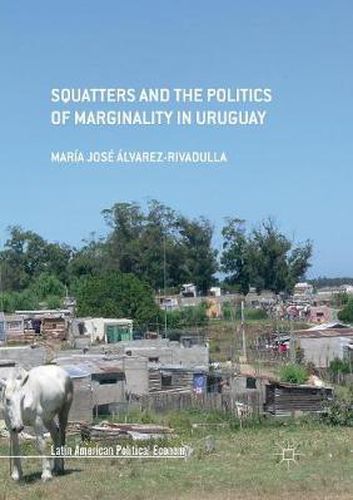Readings Newsletter
Become a Readings Member to make your shopping experience even easier.
Sign in or sign up for free!
You’re not far away from qualifying for FREE standard shipping within Australia
You’ve qualified for FREE standard shipping within Australia
The cart is loading…






This title is printed to order. This book may have been self-published. If so, we cannot guarantee the quality of the content. In the main most books will have gone through the editing process however some may not. We therefore suggest that you be aware of this before ordering this book. If in doubt check either the author or publisher’s details as we are unable to accept any returns unless they are faulty. Please contact us if you have any questions.
This book unveils the political economy of land squatting in a third world city, Montevideo, in Uruguay. It focuses on the effects of democratization on the mobilization of the poorest as well as on the role played by different types of brokers, from radical Catholic priests to local leaders embedded in political networks. Through a multi-method endeavour that combines ethnography, historical sources, and quantitative time series, the author reconstructs the history of the informal city since the late 1940s to the present. From a social movements/contentious politics perspective, the book challenges the assumption that socioeconomic factors such as poverty were the only causes triggering land squatting.
$9.00 standard shipping within Australia
FREE standard shipping within Australia for orders over $100.00
Express & International shipping calculated at checkout
This title is printed to order. This book may have been self-published. If so, we cannot guarantee the quality of the content. In the main most books will have gone through the editing process however some may not. We therefore suggest that you be aware of this before ordering this book. If in doubt check either the author or publisher’s details as we are unable to accept any returns unless they are faulty. Please contact us if you have any questions.
This book unveils the political economy of land squatting in a third world city, Montevideo, in Uruguay. It focuses on the effects of democratization on the mobilization of the poorest as well as on the role played by different types of brokers, from radical Catholic priests to local leaders embedded in political networks. Through a multi-method endeavour that combines ethnography, historical sources, and quantitative time series, the author reconstructs the history of the informal city since the late 1940s to the present. From a social movements/contentious politics perspective, the book challenges the assumption that socioeconomic factors such as poverty were the only causes triggering land squatting.